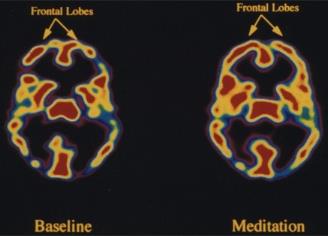Who said you can’t get smarter by watching TV? Or if not smarter exactly, certainly more knowledgeable.
Jason Silva (top), the effusive host of Brain Games, National Geographic Channel’s thought-provoking series about the human brain (on Sunday evenings beginning 2/14 at 9 p.m. ET), has always regarded himself as something of a tour guide. And so it makes perfect sense that the opening episodes of Brain Games’ new season find Silva first in London and then Jerusalem, where he compares the evolution of two of the world’s great cities to the evolution of the human mind.
That may sound obtuse, but one of the great delights of Brain Games is that, as entertainment TV goes, it’s anything but. Silva is young, wired and fueled by kinetic energy, but never annoying. He makes his test subjects — both the volunteers in his weekly mind games and the viewers watching at home — feel like fools on occasion, but never in a mean-spirited way. Brain Games is like Candid Camera for an audience with a college degree.
By creating simple, Survivor-like challenges designed to test people’s memory recall, visual acuity, hand-to-eye coordination and other functions of the human brain, Silva has created a TV program that is both engaging and surprisingly edifying.
In “Meet the Brain,” the new-season opener, for example, Silva challenges a London cab driver, a 10-year-old English girl who loves solving mazes, and a UK Ph.D. mathematics major to see who can navigate a hedge maze most quickly. The idea is to test the subjects’ spatial memory while examining that part of the brain that allows us to find our way home after one too many at the local pub. Licensed cab drivers in London are required to pass a test that involves memorizing thousands of streets, most of which — true to the English way of doing things — make little to no sense, either geometrically, geographically or any other way the human correlates to. (The ancient Romans, masters of geometry, mathematics and engineering, are said to have founded London in 50 AD; they gave up soon afterward.)
Brain Games isn’t just about silly games, though. As Silva both explains and shows by actual example, the human brain has been conditioned over the ages to react instantly and subconsciously to matters of life and death. We flinch, not because we’re cowards but because evolutionary memory has taught us that not to flinch is to invite death. Human beings are easily distracted — but with good reason. If a cobra suddenly rears in front of you, it’s not a good idea to freeze.
In the coming weekend’s episode, Silva takes on one of the great bugaboos of society today: religion. Silva journeys to Jerusalem, to take in ancient religious sites and to examine new research that suggests a belief in God may be hardwired into our brains. “The God Brain” (below) is heady stuff for a program that bills itself as light entertainment, but that’s where Brain Games works its magic. It’s both fun to watch, thanks to Silva’s ebullient screen persona and the mind challenges, as well as intellectually stimulating. One doesn’t have to be a believer in a higher being to wonder whether there’s a part of the brain that has evolved over thousands of years that equates spirituality with evolutionary adaptation to hostile surroundings.

Brain Games uses talking heads — Jefferson University Hospital neurophysiologist Andrew Newberg and UCLA environmental psychologist Jennifer Whitson in “The God Brain,” for example, to name just two — but they never overwhelm the overall idea with petty detail.
In “The God Brain,” Dr. Bruce Hood, an experimental psychologist at Britain’s University of Bristol, demonstrates how even the most skeptical, unbelieving brain harbors unconscious biases — the idea, for example, that we know The Bachelor is complete, utter twaddle, and yet we watch, no matter how many college degrees we have, because we know the payoff will be kinda fun, despite our knowing beforehand that this relationship will never, ever work out over the long run.
Unlike Survivor, The God Brain features a challenge — a mind game, if you will — that puts subjects’ integrity to the test and asks important, meaningful questions about morality. What other TV show can claim to make you more knowledgeable and a better person at the same time?
Brain Games is a blast. And a trip for the mind.